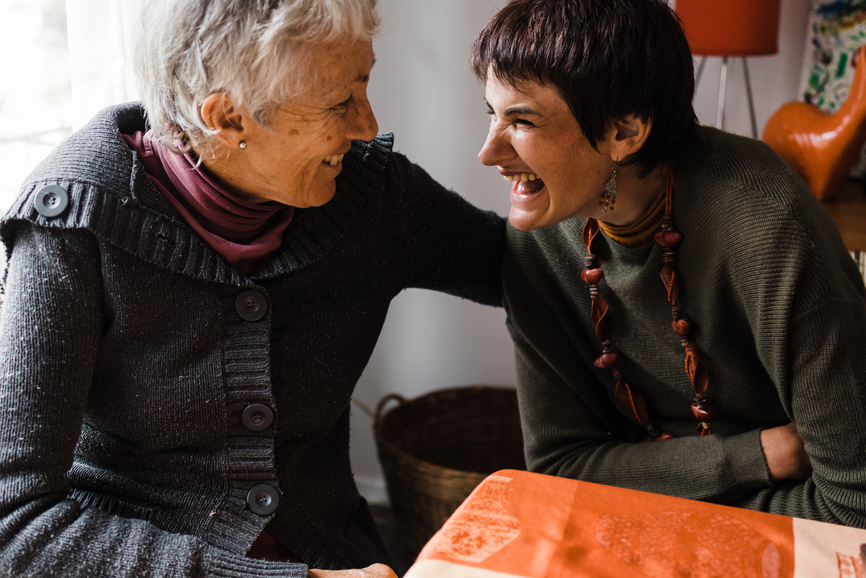2.65 million Australians provide care and support to a family member or friend. Acknowledging those that manage the incredible job of balancing care and career, Grace Papers held a LIVE coaching session with special guest carers. They shared their stories, challenges and celebrated how they find joy in their juggle, and maintain care for themselves while caring for others.
Andrew Parkinson is Director Communications at DPIE and cares for his wife who is diagnosed with frontal lobe dementia and suspected motor neurone disease. He shared his strategies for self-care:
“I’m a practical person and focussing on the practical stuff helps me push the grief away for a moment. But when I’m alone I feel it catching up with me, I can feel the heckles stand up on the back of my neck, sometimes it’s overwhelming and I just need to have a big cry.
It’s like a living grief. When you’ve dealt with someone who has passed you know people that have been through it, but this is a living grief and you live with it everyday and it’s different for everyone.”
He also gives credit to the support he has received from his work community stating:
“The community at work is everything. Having a culture of compassion isn’t incompatible with being productive. When you have a culture of compassion, it lends itself to create a space where it’s safe to talk about issues and challenges that we’re facing.
I remember in July, Jen couldn’t ingest food and she was in danger of aspiration. So she got a peg tube. I had to take time off work. When I got back I said “thanks” on our workplace facebook channel and the amount of support I got through the network was incredible.
So many people said: ‘You’re in the right place to be supported through what you’re going through’. And I was.”
Samara Dobbins, Deputy Secretary, People & Operations at Department of Premier and Cabinet (NSW) feels that when she found it challenging to care for her daughter who has a diagnosis of Williams Syndrome she had to lean into some hard truths:
“It was doing things like owning up and saying; “I can’t do this. Saskia is screaming all the time, she’s got a feeding tube, I’m doing school pick up, I’m trying to teach my son to read. I can’t do it”.
Part of my self-compassion was saying “I can’t do this” and my husband listened and took one day a week to assist, so I wasn’t doing the five day a week stretch. It made a difference.
I also gave myself permission to go back to my job in a senior role at the Department of Premier and Cabinet (NSW), which means handing over the day to day hands-on caring when I need to. I give myself permission to do what I like and I’m good at it.”
At the same time she has found that there is joy to be had in rituals and celebrations on weekends.
“My self care is doing fun things with my family and my kids. Since Sydney has been in lockdown every Saturday night we do a themed dinner. My husband and I love cooking and entertaining. We do all of it, we make fabulous food, we decorate, I got the kids to make origami. We take all day, we go over the top! It gives us something to focus on for the whole week. We think of the recipes, the culture, I get the kids doing craft activities… throwing myself into something like that takes a lot of time and energy but is completely unrelated to what I do in my everyday life.”
Explore Grace Papers Care for yourself while caring for others activity to understand more.




